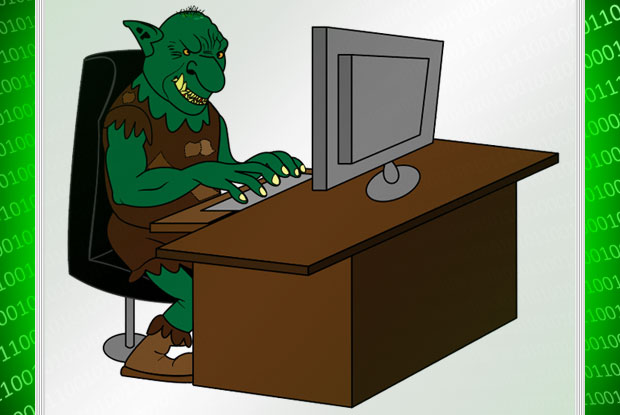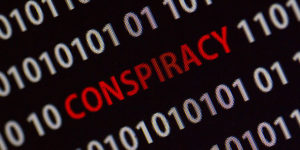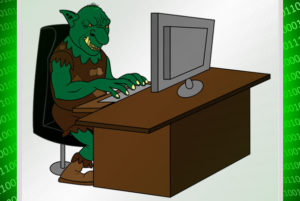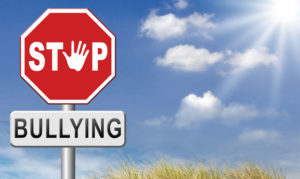Mainly because of the amount of money they bring in, many people expect celebrities and other prominent figures to have thicker skins than the average Jane or Joe. However — as evidenced by the numbers of celebrities who’ve forsaken social media, or who have handed the keys to their accounts to their PR teams — fame and fortune are not effective defenses against an all-out assault by faceless trolls.
Saturday Night Live cast member Leslie Jones temporarily unplugged her Twitter account after being bombarded by racist and sexist attacks. Girls star Lena Dunham quit Twitter after being body shamed and verbally abused. Filmmaker Joss Whedon fled Twitter last year, after being targeted with verbal abuse for his portrayal of Black Widow in Avengers: Age of Ultron.
Count the likes of Amy Poehler, Tina Fey and Jennifer Lawrence among the celebs who simply don’t care to join social network, as least not using their given names. And Sia doesn’t even want the public to get a good look at her face.
Some of the prominent celebs to speak about social media’s potential for inflicting harm include Angelina Jolie, Johnny Depp and Keira Knight, who has said that sharing with the public opens you up to “a lot of criticism and a lot of people telling you they hate you.”
No One Is Safe
While attacks on private individuals can be more personal and more targeted, they’re typically much less numerous. Anyone who is visible to large numbers of people — from business owners to YouTube stars — is vulnerable to a massive onslaught due to the sheer volume of people who flock to their accounts.
Cary Peterson, an American federal lobbyist and UN delegate, has experienced decades of online abuse. Bullying, slander and defamation have cost him job promotions, business deals, friendships, millions of dollars in legal fees, and a marriage, he said.
“These online mobs are real, and the general public needs to be aware of it, and how serious it is,” Peterson told TechNewsWorld.
Almost daily, Peterson finds himself battling faceless accounts, and when people start to believe the allegations posted from such accounts, that’s when things can spiral out of control.
“I’ve been rather fortunate in these instances to still be alive and well, but I’ve seen many people and businesses over my past 20 years doing business online, wiped out and terminated,” he said. “Nonetheless, it’s quite fascinating what can be done from a laptop and Internet connection these days — and cost little to nothing to execute.”
Nowhere Is Safe
Despite all the good they do in keeping family and friends connected, social media sites have a dark side. They quickly can become breeding grounds for harassment, noted Scott A Spackey, a career coach and family counselor.
“Social media has become a forum for intimidation, abuse and shaming because of its lack of accountability,” he told TechNewsWorld. “Virtual reality is remote and has the illusion of being impersonal, which encourages people to behave in ways they would NEVER do in person or public.”
Massive Twitter campaigns can be sparked by people using fake names and profiles, noted Wendy Lewis, president ofWendy Lewis & Co. Recently, much of it stemmed from divisive politics, fueled by the unrestrained comments of certain politicians.
“If it’s OK for a presidential candidate to practice name calling — like ‘the devil’ — or making comments about his dissenters’ physique …, then it may seem more acceptable to others who are so inclined,” she told TechNewsWorld.
Business and public figures have a bit more recourse at Facebook, compared to Twitter. The page owner can remove posts, report harassment, and possibly prompt the banning of the user, Lewis noted.
“If they are aggressive, you may see that they attempt the same posts under a different fake profile name, and keep going by commenting on every post on the page,” Lewis said. “As a last resort, you can reset your Facebook page privacy settings, and even set your page up to have all comments approved before they go live.”
Regardless of the forum or format, it doesn’t take much searching to find an online thread littered with the type of language rarely used in public places offline.
While the reporting and banning tools help, it’s up to humanity to try harder to be more human online, suggested parent advocate Sue Scheff, author of the upcoming book Shame Nation.
“It’s time for all of us to start being an upstander, reaching out to those that are struggling,” she told TechNewsWorld.
If you “receive a disturbing text or sext, don’t forward it or chuckle — stop it!” Scheff urged. “Comfort friends — be there. Most importantly, be part of the solution. Don’t be silent. There’s nothing worse than believing you’re alone.”





















































The problem with celebrities is that they are surrounded by people who put them on a pedestal. When they branch out into the real world they are taken back by anyone who doesn’t drink what they are serving. It’s this isolation that prevents them from knowing what’s really going on. They only wish to receive praise not negative feedback. There are some celebrities that actually live outside their sheltered life of stardom. They volunteer, the contribute to society in the most sincere way. They rest belong to a club of self fulfilling people who only want filtered lives void of anything else.